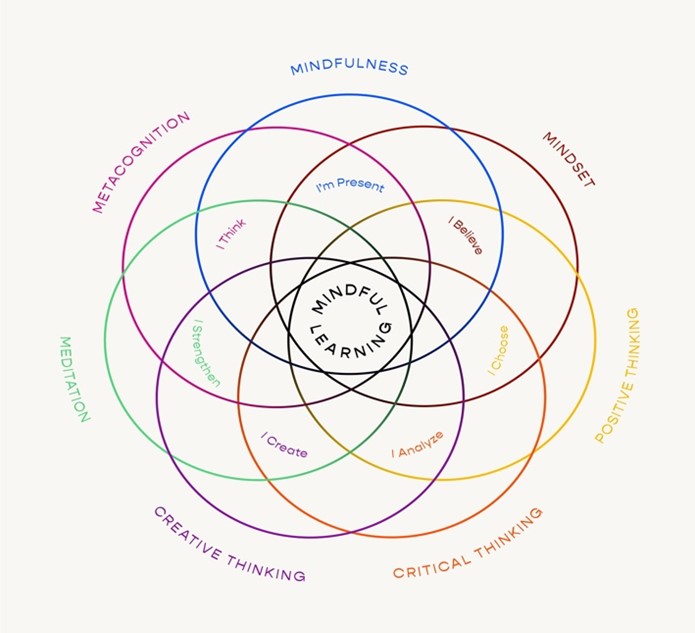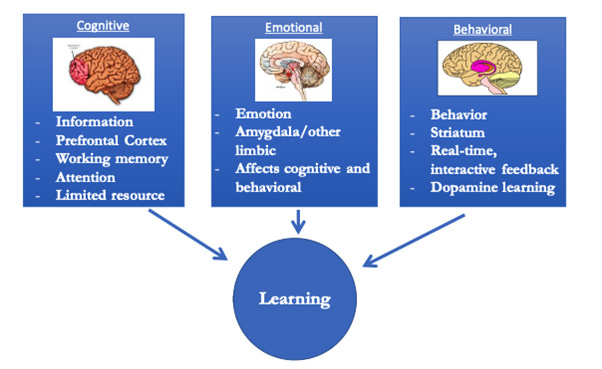
Unlocking the Brain’s Potential: Neuroscience-Driven Learning Strategies
Revolutionize learning by leveraging the brain's natural processes for optimal outcomes.At its core, brain-based learning is about understanding and leveraging the brain's natural processes to enhance learning. Two key concepts are central to this approach:
Neuroplasticity: This refers to the brain's ability to form new neural connections throughout life. Every time we learn something new, our brain physically changes[1].
Memory consolidation: This is the process by which short-term memories are transformed into long-term memories, primarily during sleep[1].
By aligning our teaching and learning strategies with these processes, we can dramatically improve educational outcomes.

Key Neuroscience-Based Learning Techniques
Spaced Repetition
Research shows that spacing out your study sessions over time leads to better long-term retention. This technique, known as spaced repetition, takes advantage of how our brains consolidate memories[1].
Active Recall
Instead of passively re-reading notes, try to actively recall information without looking at your materials. This process, known as retrieval practice, strengthens neural pathways and improves long-term memory[1].
Interleaving
Rather than studying one topic intensively before moving to the next, try mixing up different subjects or skills within a single study session. This approach, called interleaving, helps the brain form stronger connections between different concepts[1].
Elaborative Rehearsal
When learning new information, try to connect it to something you already know. This technique, known as elaborative rehearsal, helps create more robust neural networks, making the information easier to recall later[1].
Mindfulness
Practicing mindfulness can improve attention and focus, which are crucial for learning. Even short meditation sessions can enhance cognitive function and reduce stress, creating an optimal state for learning[1].
The Role of Emotions in Learning
Have you ever noticed how easily you remember emotionally charged events? That's because emotions play a crucial role in memory formation. Positive emotions, in particular, can enhance learning and recall. As educators and learners, we should strive to create positive, engaging learning environments that tap into this emotional-cognitive connection[1].

Sleep and Learning
If you've ever pulled an all-nighter to study, you might want to reconsider that strategy. Sleep is crucial for memory consolidation. During sleep, the brain replays and strengthens the neural pathways formed during learning. To optimize learning, aim for 7-9 hours of quality sleep each night, and consider taking short naps after study sessions[1].
Nutrition and Exercise
What you eat and how much you move can significantly impact your brain's ability to learn. A diet rich in omega-3 fatty acids, antioxidants, and complex carbohydrates can boost cognitive function. Regular exercise, particularly aerobic activities, increases blood flow to the brain and promotes the growth of new neurons[1].
Technology and Neuroscience-Based Learning
Educational technology is increasingly incorporating neuroscience principles. For example, some apps use spaced repetition algorithms to optimize review schedules. Looking ahead, neurofeedback and brain-computer interfaces hold promise for personalizing learning experiences based on real-time brain activity[1].
Practical Applications in Different Settings
These neuroscience-based techniques can be applied in various settings:
- In schools, teachers can incorporate active recall and interleaving into their lesson plans.
- Self-learners can use spaced repetition apps and mindfulness practices to enhance their study routines.
- In corporate training, elaborative rehearsal can help employees connect new skills to their existing knowledge base[1].
Challenges and Controversies
While the potential of neuroscience in education is exciting, it's important to approach "brain-based" learning claims critically. Not all neuroscience findings translate directly to classroom practices, and there's often a gap between research and educational application. As the field evolves, we must continue to rigorously test and refine our approaches[1].
The Future of Neuroscience in Education
Looking ahead, I believe we're on the cusp of a learning revolution. As we deepen our understanding of the brain, we'll be able to create increasingly personalized and effective learning experiences. Imagine a future where education is tailored to each individual's unique neural patterns and learning styles.
In conclusion, by harnessing the power of neuroscience, we have the potential to transform education and unlock the full learning capacity of every individual. The brain is the ultimate frontier in education - are you ready to explore it?
Sources
- https://www.ncbi.nlm.nih.gov/pmc/articles/PMC8678470/
- https://link.springer.com/article/10.1007/s11948-021-00328-3
- https://soeonline.american.edu/blog/brain-based-learning/
The Rise of Microlearning and Nano-Degrees: Revolutionizing Education






Comments
No comments yet. Be the first to comment!
Leave a Comment